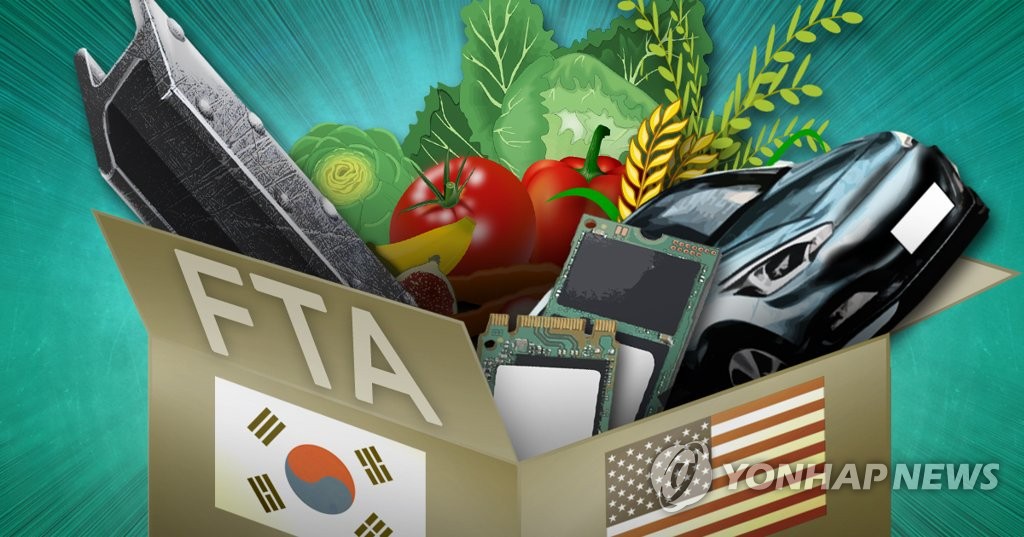South Korea is expected to benefit from a rise in trade with emerging countries and other major economies under the envisioned Asia-Pacific trade deal amid its efforts to expand its trade network around the globe.
On Monday, ASEAN member states, South Korea and five other countries reached a deal on a mega Asia-Pacific trade pact, known as the Regional Comprehensive Economic Partnership (RCEP), effectively concluding yearslong negotiations.
The agreement involved the whole 10-member ASEAN bloc and its dialogue partners: South Korea, China, Japan, Australia and New Zealand. But another participating country, India, did not join the deal.
It came at an RCEP summit held in Bangkok as part of annual regional meetings hosted by ASEAN.

The RCEP came amid growing protectionism around the globe which prodded South Korea to diversify its trade portfolio.
The RCEP will mark the biggest trade deal ever clinched by South Korea. The economic bloc accounts for a third of the world's gross domestic product.
The countries reached common ground on 20 chapters of the deal, according to the Ministry of Trade, Industry, and Energy. They will continue to carry out talks on details, and vowed to finalize the deal within 2020.
The RCEP talks began in 2013, and the participating nations held 28 official negotiations.
"Against the backdrop of a fast-changing global environment, the completion of the RCEP negotiations will demonstrate our collective commitment to an open trade and investment environment across the region," the countries said in an English-language statement.
"India has significant outstanding issues, which remain unresolved. All RCEP Participating Countries will work together to resolve these outstanding issues in a mutually satisfactory way. India's final decision will depend on satisfactory resolution of these issues," it added.
South Korea has already signed free trade deals with 14 countries, except Japan, which means RCEP will cover any loopholes in each trade deal, according to the ministry.
The ministry said RCEP will help South Korea further utilize existing FTAs.
In particular, exports of electronic goods and autos will increase, with South Korean firms being able to tap deeper into infrastructure-related projects in the countries.
But Seoul may suffer damage from RCEP because New Zealand, China and other countries have advantages in the agriculture and fishery sectors, according to the ministry.
The deal is also crucial as it reflects the latest changes in industries, such as online commerce and intellectual rights.
Such aspects will especially lend hands to South Korean entertainment firms, which have been penetrating deeper into the Southeast Asian market.
The trade ministry said the agreement will pave the way for South Korean exporters to tap deeper into emerging markets.
South Korea has been making efforts to expand its trade network around the globe, particularly with the emerging markets to ease its heavy dependency on the world's top two economies, namely China and the United States.
Asia's No.-4 economy has been facing hurdles in its outbound shipments due to the prolonged trade dispute between Beijing and Washington, along with other uncertainties including Britain's exit from the European Union.
South Korea's exports plunged 14.7 percent in October from a year earlier, extending their slump to an 11th consecutive month. The decline is mainly blamed on the sluggish performance of the chip industry coupled with a series of trade rows around the globe.
The country has inked or implemented three new FTAs this year, with more trade talks currently underway. (Yonhap)

